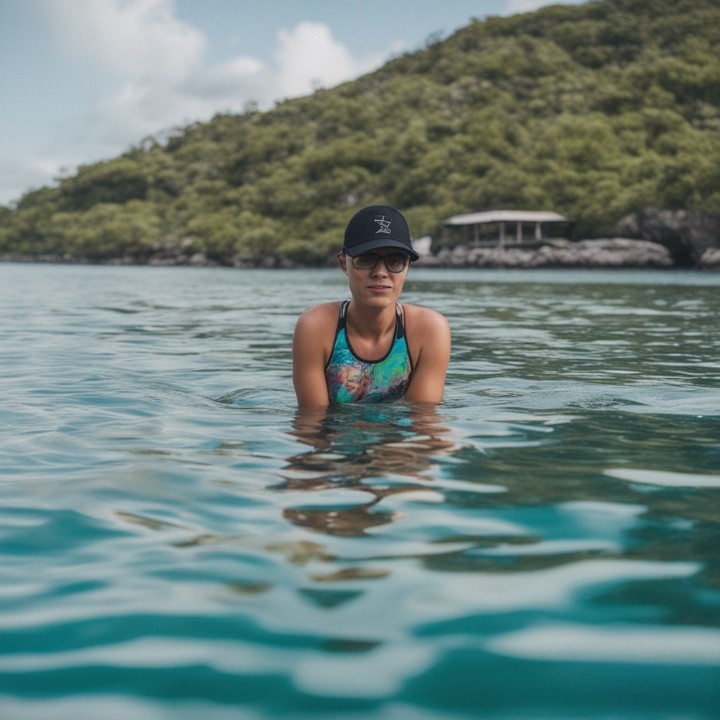Snorkeling is a popular ocean activity that allows you to explore the underwater world without scuba gear. As you swim and observe marine life up close, having the right footwear is important for comfort and safety. Water shoes offer superior grip, protection, and drainage for water activities like water aerobics, kayaking, white water rafting, canoeing, paddle boarding, and fishing. But do you really need special water shoes for snorkeling? Let’s dive in and find out.
QUICK ANSWER
Based on our research, here are the top 3 water shoes we recommend for snorkeling:
- Speedo Surfwalker Pro – Great traction and protection
- Merrell All Out Crush 2 – Lightweight and quick-drying
- OluKai Kakauna Flip Flop – Stylish and versatile
While not always mandatory, wearing water shoes while snorkeling can protect your feet and enhance grip on slippery surfaces. They become more essential if snorkeling over reefs or rocky areas.
Why You Should Wear Water Shoes for Snorkeling
Water shoes provide a few advantages when snorkeling:
Protection from Coral and Rocks
Sharp coral, sea urchins, and jagged rocks can easily cut bare feet. Water shoes shield your feet from these hazards. Their thick rubber soles prevent puncture wounds.
Traction on Slippery Surfaces
Algae-covered rocks and shifting sands can cause falls without proper footwear. Water shoes grip the terrain with their lugged soles to prevent wiping out.
Barrier from Hot Sand and Debris
Walking on hot sand and sea floor debris pre- and post-snorkel can burn or irritate bare feet. Water shoes provide insulation against hot surfaces.
Warmth in Cool Water
Cool water can quickly chill feet, causing discomfort. Neoprene water shoes retain warmth while snorkeling in frigid temperatures.
Protection from Marine Life
Some marine creatures like jellyfish can sting exposed feet and ankles. Water shoes provide a protective barrier against these interactions.
When You May Not Need Water Shoes
Water shoes offer clear benefits, but aren’t always essential. Here are some instances when they may be optional:
Snorkeling from a Boat
If you lowered off a boat into deep water, shoes offer less advantage. You avoid walking over hot or rocky surfaces where traction matters.
Sandy Entry Areas
When entering snorkel sites with soft sandy beaches, shoes aren’t as necessary early in the day before sand heats up significantly.
Warm, Gentle Conditions
In very warm climates and calm waters, shoes provide less insulation and cut protection benefits. Barefoot snorkeling remains an option.
Even in these cases, water shoes can still enhance grip and footing. But the need is reduced compared to rockier environments.
Best Water Shoes for Snorkeling
When selecting water shoes for snorkeling, prioritize grip, protection, and drainage. Top options include:
Speedo Surfwalker Pro
With a rubberized sole and neoprene upper, these amphibious shoes provide traction and comfort in all environments.
Merrell All Out Crush 2
Merrell’s water shoes dry quickly with lightweight breathability perfect for active water pursuits.
OluKai Kakauna Flip Flop
Between the water-resistant leather and coral-reef traction sole, these flip flops transition seamlessly from land to sea.
Consider foot coverage, thickness of soles, draw-cord tightening, and integrated drainage systems when choosing shoes. Test footwear stability by walking in them on slippery surfaces before entering the water.
Final Thoughts
While non-mandatory in some situations, wearing water shoes for snorkeling offers definite benefits in many cases. They protect against puncture wounds, enhance slip-resistance, insulate against extreme temperatures, and prevent stubbed toes.
Investing in a pair of sturdy water shoes with thick soles is wise, especially when snorkeling in coral reefs or rugged ocean coves. But on soft sandy beaches or warm shallows, barefoot snorkeling remains an option. Evaluate each environment and snorkeling style to decide if specialized footwear is right for you. Just remember to walk carefully both in and out of the water!
